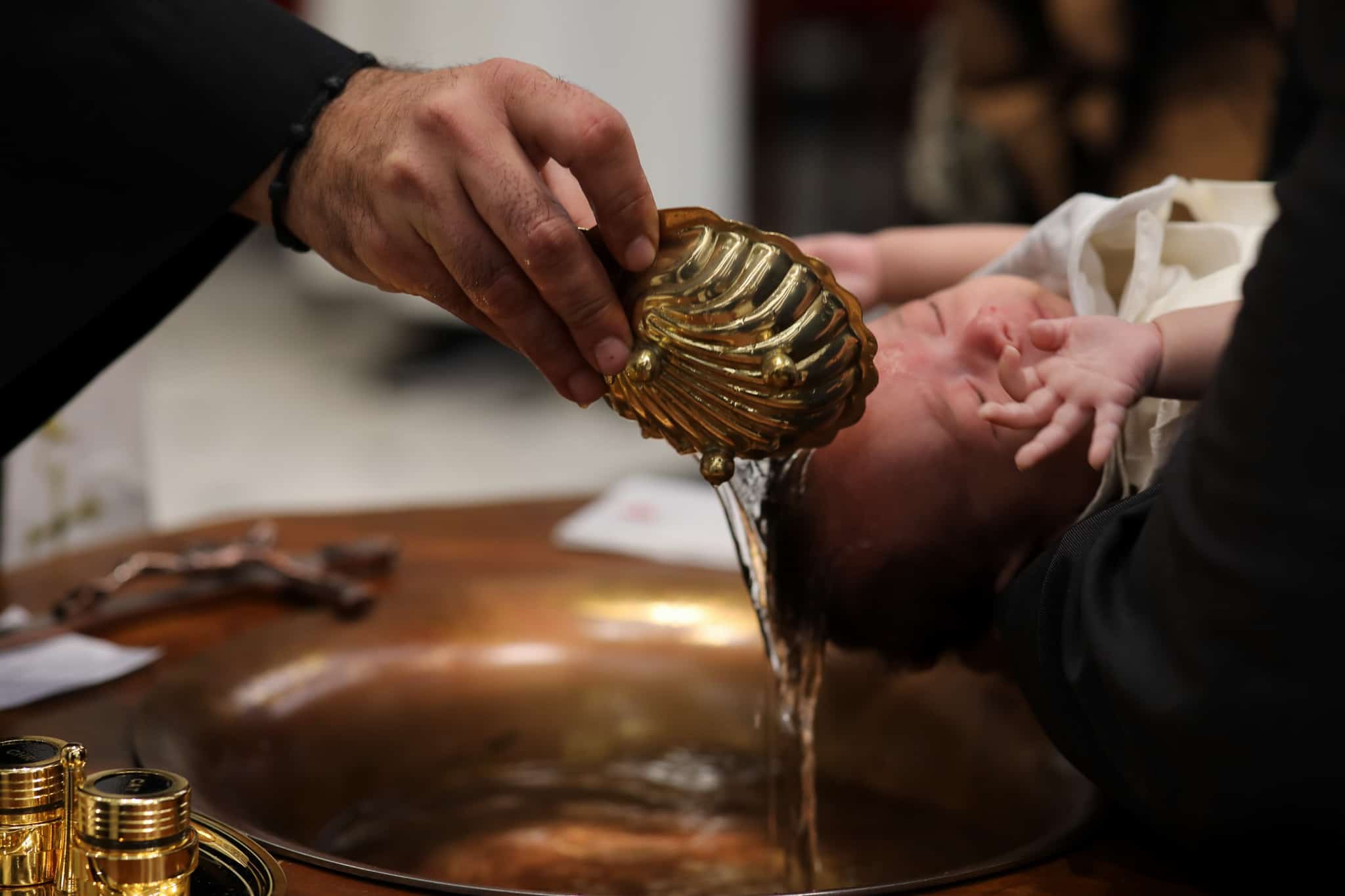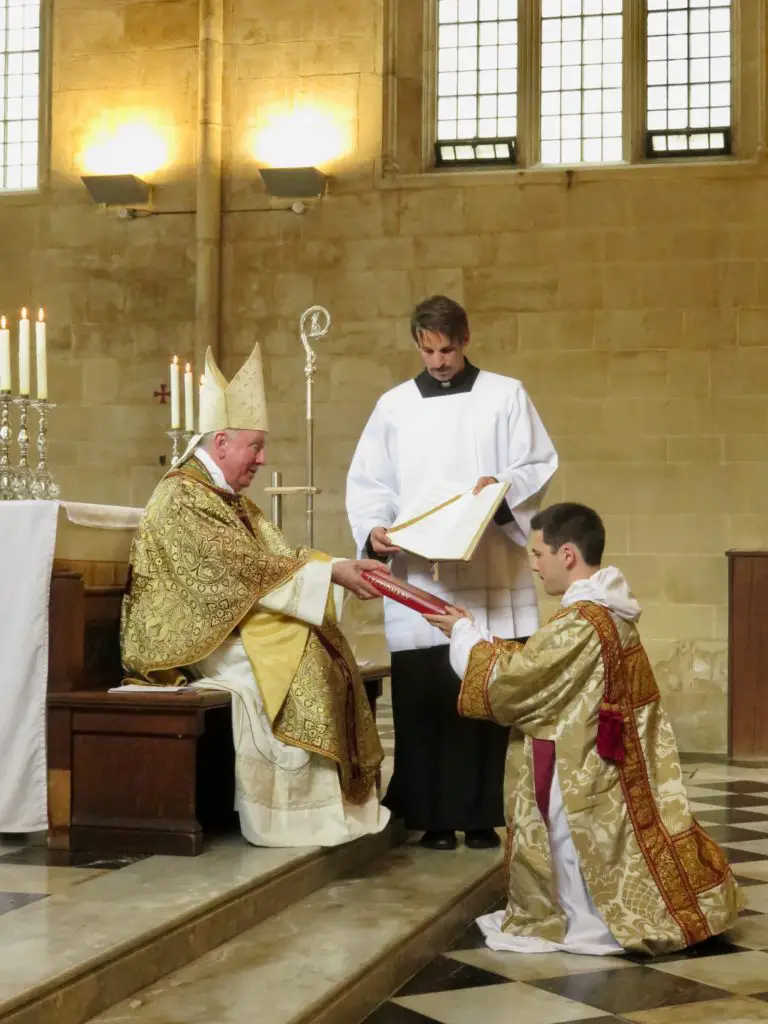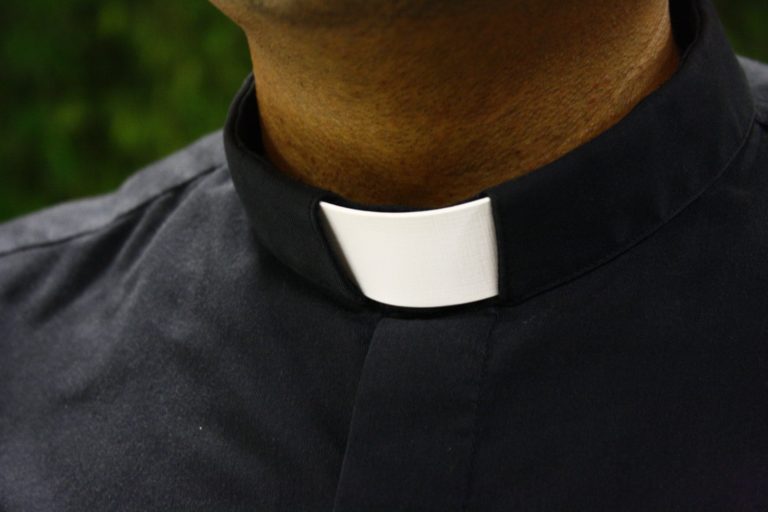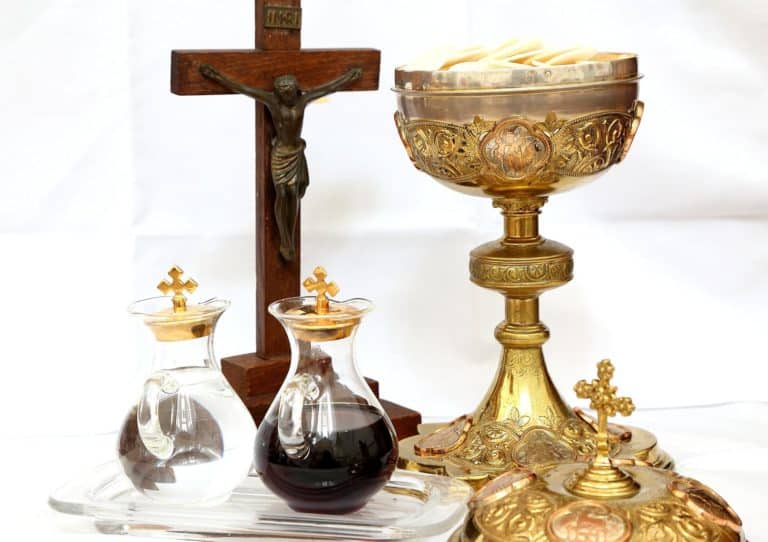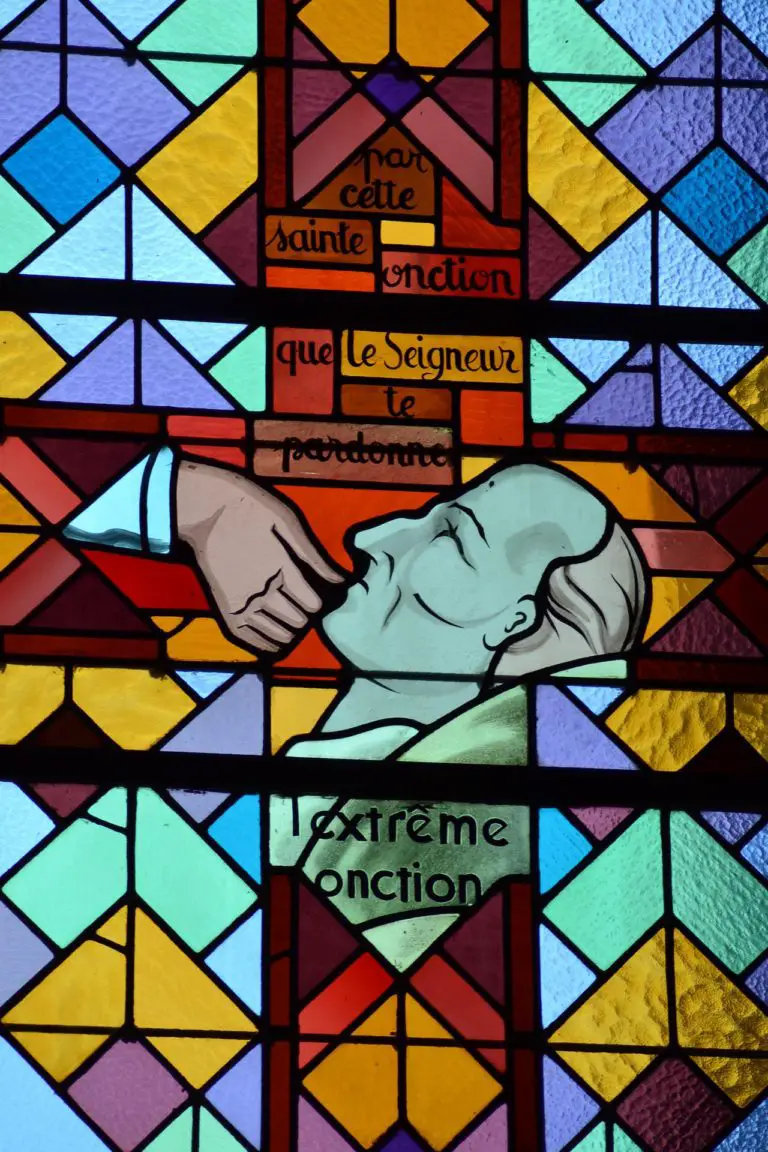What is Baptism?
The first in the Sacraments of Initiation is Baptism. Baptism, is where a person is born again of water and spirit. For Catholics, the Sacrament of Baptism is necessary for the reception of any of the other six sacraments.
Baptism initiates the individual into the Christian faith. For Catholics, Baptism is the required and an essential Sacrament for the reception of the other six sacraments. The Baptised Christian becomes a child of God, St John of Damascus states, “… that we were made sons of God through Him by being adopted through baptism”. Baptism is conferred through the actual act of water (matter) and the words ‘I baptise you in the name of the Father, and of the Son, and of the Holy Spirit’ (form). Besides being an initiation into the Christian faith, Baptism comes with various properties. These includes Grace of Justification i.e. the remission of sin both Original and Actual Sin; the remission of punishment due to sin; and the Baptismal Character – an indelible mark in the soul which renders the Sacrament non-repeatable. Baptism is necessary for salvation and can be in the form of Baptism by desire or Baptism by blood (martyrdom).
Is there a Biblical basis for Baptism?
According to the Lexham Bible Dictionary, there are several references to baptism in the Old Testament through cleansing through water (Ezekiel 36:25-26; Zechariah 13:1; Isaiah 1:16; Isaiah 4:4), however the word and concept of Baptism is primarily a New Testament concept. St John the Baptised used the act of Baptising with water in a spiritual sense and this was followed by the Apostles through the institution of the Sacrament as a rite of initiation into the Christian faith by Jesus Christ.
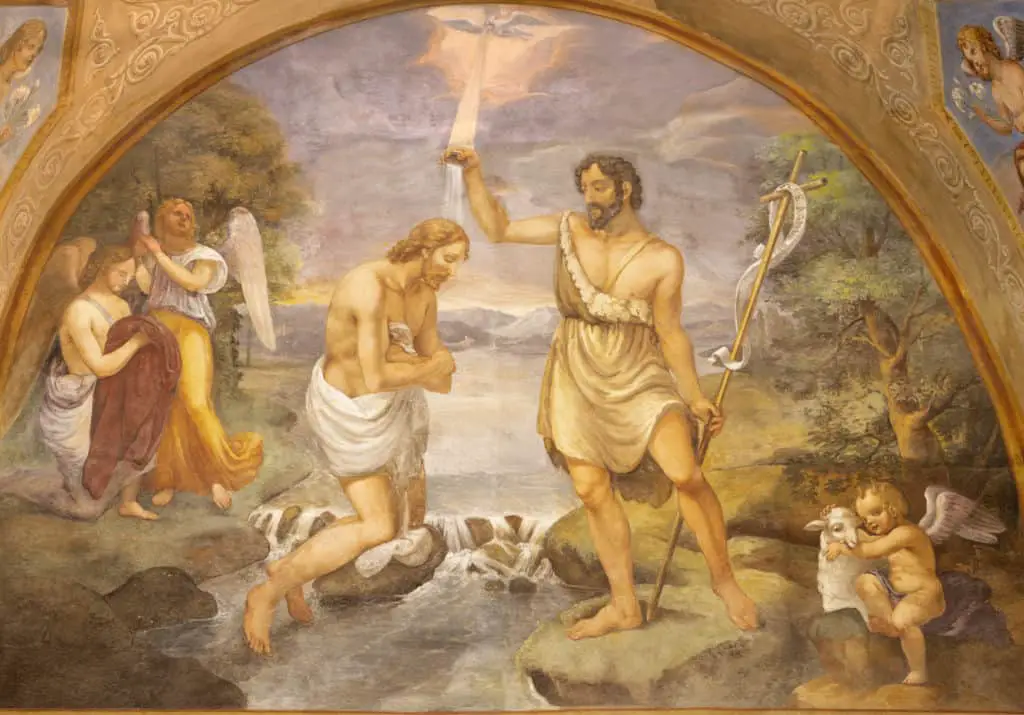
Baptism in Greek means “immersion” or “dipping”. The word stems from Greek, βάπτισμα, ατος, τό , Baptisma which means plunging, dipping, washing, water-rite, baptism. The root word is βαπτω, bapto which means to dip or dip in water and appears in 120 passages and mainly in the New Testament. The other sense of the word is βαπτισμός baptismos, which does not appear as frequently and is the act of washing but also has its roots fromm the Greek word bapto.
The rite of Baptism is essential for the Christian and the Bible is clear, through the teaching and instruction of Jesus.
Did Jesus institute the Sacrament of Baptism?
The New Testament clearly shows the institution of the Sacrament of Baptism by Jesus Christ. Below are several quotes to illustrate this point.
The final instruction and command that Jesus gave to the Apostles as He Ascended into Heaven is the Trinitarian working of the Sacrament of Baptism. This we call the words or form of the Sacrament of Baptism. The water i.e. matter and Trinitarian words i.e. form are two elements necessary for a valid Baptism.
Jesus said:
“And Jesus coming, spoke to them, saying: All power is given to me in heaven and in earth. Going therefore, teach ye all nations: baptizing them in the name of the Father and of the Son and of the Holy Ghost. Teaching them to observe all things whatsoever I have commanded you. And behold I am with you all days, even to the consummation of the world” (St Matthew 28: 18-20).
Early in His ministry, Jesus spoke about Baptism as a requirement and a formal rite. We read the following when He responds to several questions from Nicodemus, a Pharisee:
“And there was a man of the Pharisees, named Nicodemus, a ruler of the Jews. This man came to Jesus by night and said to him: Rabbi, we know that thou art come a teacher from God; for no man can do these signs which thou dost, unless God be with him.
Jesus answered and said to him: Amen, amen, I say to thee, unless a man be born again, he cannot see the kingdom of God.
Nicodemus saith to him: How can a man be born when he is old? Can he enter a second time into his mother’s womb and be born again?
Jesus answered: Amen, amen, I say to thee, unless a man be born again of water and the Holy Ghost, he cannot enter into the kingdom of God. That which is born of the flesh is flesh: and that which is born of the Spirit is spirit. Wonder not that I said to thee: You must be born again. The Spirit breatheth where he will and thou hearest his voice: but thou knowest not whence he cometh and whither he goeth. So is every one that is born of the Spirit.
Nicodemus answered and said to him: How can these things be done?
Jesus answered and said to him: Art thou a master in Israel, and knowest not these things?
Amen, amen, I say to thee that we speak what we know and we testify what we have seen: and you receive not our testimony. If I have spoken to you earthly things, and you believe not: how will you believe, if I shall speak to you heavenly things?
And no man hath ascended into heaven, but he that descended from heaven, the Son of man who is in heaven. And as Moses lifted up the serpent in the desert, so must the Son of man be lifted up:
That whosoever believeth in him may not perish, but may have life everlasting. For God so loved the world, as to give his only begotten Son: that whosoever believeth in him may not perish, but may have life everlasting. For God sent not his Son into the world, to judge the world: but that the world may be saved by him.
He that believeth in him is not judged. But he that doth not believe is already judged: because he believeth not in the name of the only begotten Son of God. And this is the judgment: Because the light is come into the world and men loved darkness rather than the light: for their works were evil.
For everyone that doth evil hateth the light and cometh not to the light, that his works may not be reproved. But he that doth truth cometh to the light, that his works may be made manifest: because they are done in God (St John 3: 1-21).
Jesus is also very clear that Baptism, the Holy Spirit and belief is necessary for salvation.
Jesus continues in St Mark’s Gospel:
“And he said to them: Go ye into the whole world and preach the gospel to every creature. He that believeth and is baptized shall be saved: but he that believeth not shall he condemned” (St Mark 16: 15-16).
The Apostles continued this rite of initiation following the descent of the Holy Spirit. We read in the Acts of the Apostles St Peter asking the crowd to repent and be Baptised in the name of Jesus Christ after he had accused them of Crucifying Jesus, they had compunction in their heart and asked what they can do? Below is the full text:
“Therefore, let all the house of Israel know most certainly that God hath made both Lord and Christ, this same Jesus, whom you have crucified. Now when they had heard these things, they had compunction in their heart and said to Peter and to the rest of the apostles: What shall we do, men and brethren?
But Peter said to them: Do penance: and be baptized every one of you in the name of Jesus Christ, for the remission of your sins. And you shall receive the gift of the Holy Ghost. For the promise is to you and to your children and to all that are far off, whomsoever the Lord our God shall call.
And with very many other words did he testify and exhort them, saying: Save yourselves from this perverse generation. They therefore that received his word were baptized: and there were added in that day about three thousand souls.
And they were persevering in the doctrine of the apostles and in the communication of the breaking of bread and in prayers. And fear came upon every soul. Many wonders also and signs were done by the apostles in Jerusalem: and there was great fervor in all. And all they that believed were together and had all things common” (Acts 2: 36-44).
Not only did the people surrounding the Apostles repent and baptized, but they also received their words and persevered in the doctrine. Here doctrine means a set of beliefs or teachings. Therefore, they believed and accepted Jesus.
What happens when we are Baptised?
The Council of Trent (Sess. 6, cap. 4; Denz. 678) along with the Gospels (St John 3:5) teach that no one can be justified without attaining Baptism of water.
“Unless a man be born again of water and the Holy Ghost, he cannot enter the Kingdom of God.” (St. John 3:5). Baptism is a necessary means of salvation.

The Sacrament of Baptism is not just an initiation in the family of God and joining the Christian community of believers. According to the Catholic Church, Baptism works many effects in the soul.
What are the effects of Baptism?
Baptism has six major effects upon the recipient of Baptism. These are explained below:
- Washing away of the Original Sin.
Every son and daughter of Adam (except for Our Lord Jesus and the Blessed Mother) from the moment of their existence in the womb of their mother, inherits the sin of Adam and Eve. This is known as Original Sin.
Man and Woman were originally created in the Grace and perfection of God, without any stain of sin, however they possessed free-will. With that free-will comes the responsibility to choose good and evil. With the choice of disobedience in the Garden of Eden (Genesis 3), both the Man and the Woman would not only suffer the consequences of their Sin (Genesis 3) but would lose the Grace and the Garden of Eden. As for future generations, all will inherit this Original Sin (expect for Our Lord Jesus and the Most Blessed Ever Virgin Mary) (Genesis 3:15), and hence require an act of God, through our cooperation, to place Grace back into the soul of everyone, hence Baptism.
This action continued through the Apostles, who baptized men for the remission of their sins (Acts 2:38). This is also declared at the Council of Trent through the following:
“… that, by the grace of our Lord which is conferred in Baptism, the guilt of original sin is remitted, and all that has the true and proper character of sin is removed” (Sess. 5, can. 5; Denz. 674.)
- Actual sins and the Temporal punishment are remitted.
Baptism has the power to remove all actual sin. In addition, the Temporal Punishment associated with these sins is remitted i.e. the guilt of sin, original and personal, both mortal and venial.
Therefore, should a person die immediately following the reception of a valid Baptism, they will enter the Beatific Vision i.e. go to Heaven.
It is worth noting that in the early Church, that when a baby is Baptized, the Christian community would worship around the baby, not the baby him/herself, but the belief that God is present in the soul of the newly Baptized baby. The availability of places of worship was scarce and dangerous for Christians, especially in the first 300 years following the Ascension.
- A character is impressed upon the soul.
The newly Baptized person is incorporated into the mystical body of Christ as a visible and official member of His Church. This enables the newly baptized to receive a number of spiritual benefits including:
- the other Sacraments,
- benefit of the Church’s prayers and ceremonies, and
- the right to be offered at Mass.
- An adopted son of God, a member of Christ (Galatians 3:27; 1 Corinthians. 6:15) and
joined to the Church. (Acts 2:41).
- Sanctifying Grace is received into the Baptized soul.
Sanctifying Grace enters the souls of the newly Baptized and brings with It the following properties:
a) Supernatural Virtues of faith, hope, charity; and
b) the Gifts of the Holy Spirit which are activated when the individual receives the
Sacrament of Confirmation. Special graces in the worship of God.
What are the three types of Baptism?
Apart from the Baptism with water, that has been dealt with comprehensively in this article, there are a further two types of Baptism.
What is Baptism of Blood?
It is the long-held Doctrine of the Fathers and the Catholic Church that all those who suffer martyrdom for Christ attain the remission of all sin and punishment due to sin.
By martyrdom is meant that the person who suffers with patience death, or treatment that would cause death, for the Catholic faith or for the practice of any Christian virtue, for example,
Tertullian states that St. John the Evangelist was thrown into the cauldron of boiling oil, by order of the emperor Domitian, and his life was miraculously spared. St John eventually died a natural death; but nevertheless, he is honoured as a martyr (Tert. De Præscript. 36; P.L. 2, 49.) since he was prepared to die for Jesus and his faith.
Since the Apostles, there are many examples of martyrs (witnesses), those men and women, who have died for their faith. However, the essential character of martyrdom is that death or suffering should be incurred voluntarily in testimony of the truth, this is the true meaning of witness. A martyr, should suffer with patience, for otherwise he has scanty likeness to Christ, who was led as a sheep to the slaughter (Isaiah 53:7).
What is Baptism of Desire?
The Catholic Church teaches (and affirmed through Scripture) that Baptism is necessary for salvation. But for those who have never heard of Jesus Christ, nor come to understand the message of the Gospel, are not beyond God’s saving power. Should they seek truth, live in accordance with God’s will as they understand it, are judged accordingly.
The Catholic Church state that if such a person knew the importance of Baptism, they would request it ordinarily. This knowledge is known only to God. These can be saved through what is called a Baptism of Desire.
The Catechism of the Catholic Church explains Baptism of Blood and Baptism of Desire:
“The Church has always held the firm conviction that those who suffer death for the sake of the faith without having received Baptism are baptized by their death for and with Christ. This Baptism of blood, like the desire for Baptism, brings about the fruits of Baptism without being a sacrament (CCC1258)
“For catechumens who die before their Baptism, their explicit desire to receive it, together with repentance for their sins, and charity, assures them the salvation that they were not able to receive through the sacrament (CCC1259).
“Since Christ died for all, and since all men are in fact called to one and the same destiny, which is divine, we must hold that the Holy Spirit offers to all the possibility of being made partakers, in a way known to God, of the Paschal mystery.” Every man who is ignorant of the Gospel of Christ and of his Church, but seeks the truth and does the will of God in accordance with his understanding of it, can be saved. It may be supposed that such persons would have desired Baptism explicitly if they had known its necessity (CCC1260).
A good, gracious and merciful God, has by His saving Grace, given a means of salvation for all men of good will. Never forget that God is just to those who reject Him with full intention.
What about Infants who die without Baptism?
It was a long-held understanding that infants who die without the Sacrament of Baptism enter to a place the Church called limbo. However, the Church has enlightened this understanding. For all is left to the mercy of God, since God is above all Sacraments, however, He does seek our cooperation.
The Catholic Church states the following on those Infants who have died without the Sacrament of Baptism:
“As regards children who have died without Baptism, the Church can only entrust them to the mercy of God, as she does in her funeral rites for them. Indeed, the great mercy of God who desires that all men should be saved, and Jesus’ tenderness toward children which caused him to say: “Let the children come to me, do not hinder them,” allow us to hope that there is a way of salvation for children who have died without Baptism. All the more urgent is the Church’s call not to prevent little children coming to Christ through the gift of holy Baptism (CCC1261).
In outlining this understanding, the parent(s) should seek the Sacrament of Baptism as soon as possible for nothing should be presumed and left to chance. God seeks our cooperation, and should children enter the world, then it is fitting that they be brought to God and His Church. It is therefore imperative that infants be baptized at the earliest possible time as no parent should run the risk of an infant dying without Baptism. There is an immense responsibility on the part of the parent(s).
What are the Matter and Form of baptism?
Each of the Sacraments contains both matter and form for the Sacrament to be received validly.
What is the Matter for Baptism?
Regarding the reception of Baptism, the Matter of Baptism is water. The water is applied either through immersion or the pouring of water, so it flows on the person. Baptism is performed, according to the Catechism, by triple immersion in the Baptismal water or pouring the water three times over the candidate’s head (CCC1239).
The practice of immersion was the Ordinary Rite of the Apostles (Acts 8:38; Romans 6:3–5; Colossians 2:12) and continued in common use as late as the fourteenth century.
Other means of pouring have been the practice in the current administration of the Church.
In as early as the third century, we find St. Cyprian speaking of “sprinkling or immersion” as alternative modes of baptizing (Epist. 76, Ad Magnum, n. 12; P.L. 3, 1194), and the sufficiency of sprinkling is implied in the Book of the Doctrine of the Apostles (n. 7), which belongs to the second century at the latest.
In fact, immersion cannot have been used with safety in the case of infants (n. 691) or the sick; and it is incredible that it was employed when as many as three thousand were baptized at once, in consequence of a sermon of St. Peter (Acts 2:41.) (Sylvester Joseph Hunter, Outlines of Dogmatic Theology, Third Edition., vol. 3, 1896, 215–218).
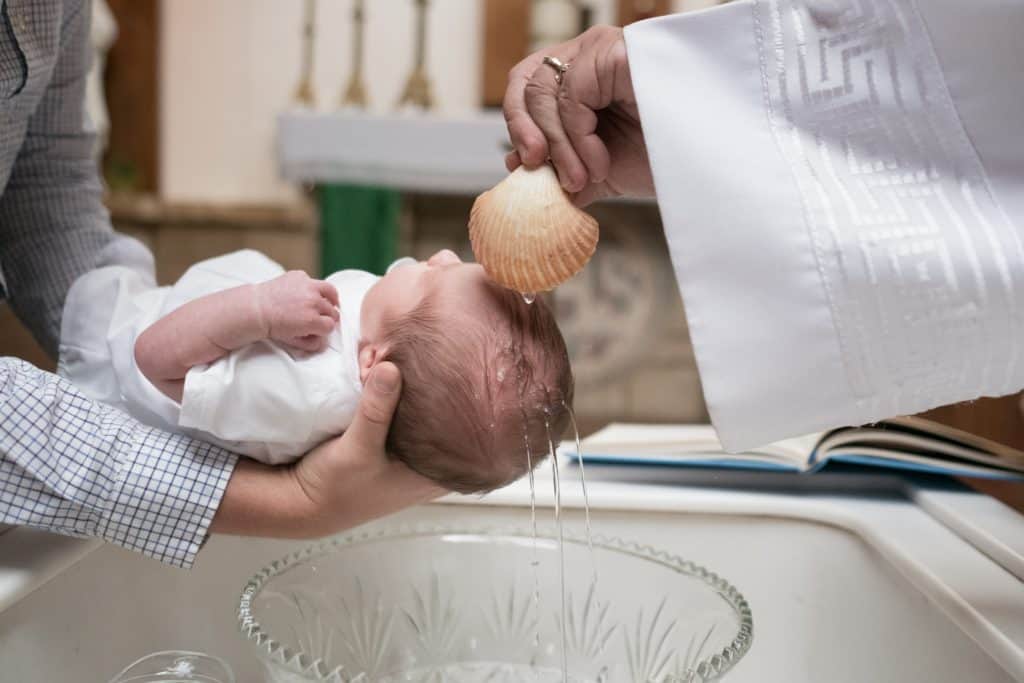
What is the Form of Baptism?
The Form (or spoken words) at Baptism is the words or instruction given by Jesus at the Ascension, known as the Great Commissioning, to the Apostles:
“And Jesus coming, spoke to them, saying: All power is given to me in heaven and in earth. Going therefore, teach ye all nations: baptizing them in the name of the Father and of the Son and of the Holy Spirit (St Matthew 28: 18-19).
The minister of the Sacrament of Baptism therefore applies the following words as the triple immersion or pouring takes place:
“I Baptize you (thee) in the name of the Father, and of the Son and of the Holy Spirit”.
Omitting these words or using some trendy version renders the Sacrament invalid.
What are other symbols used at a Baptism?
There is an initial anointing with the sacred chrism, perfumed oil consecrated by the bishop, which signifies the gift of the Holy Spirit to the newly baptised (CCC141).
In the Easter Catholic Rite of the Church, the post-baptismal anointing is the Sacrament of Chrismation (Confirmation). In the Roman Rite, this is an announcement that the Sacrament of Confirmation will be conferred later by a Bishop (CCC142). Other symbols at a Baptism include the White Garment symbolising the ‘putting on Christ” and the Candle which symbolises that the newly baptised has been enlightened by Christ and that they ate the “light of the world” (CCC1243).
Who can Baptise?
It is a commonly held view by the Catholic Church that apart from the case of an emergency or by necessity, when anyone can Baptise, Baptism must be administered by a priest or a deacon
But Baptism by any lay man or woman will be valid, and even by a heathen or infidel, provided that matter and form are used duly, with the intention of performing the initiatory rite of the Christians.
Converts to the Catholic faith, from whatever sect they come, are always baptized conditionally, except in two cases.
First, there may be positive proof forthcoming that in the individual case no valid Baptism has been administered, as when the rite used by the sect (which the person(s) belonged to) was wholly omitted, or is such as is certainly invalid. The covert in this case is baptized unconditionally assuring the reception of the Sacrament validly.
Secondly, when there is positive proof forthcoming that a valid rite was duly administered. Here the Sacrament is not repeated but the conditional baptism expresses the intention to minister to baptize the candidate i.e. “if thou art unbaptized’.
This is used when there may be some doubt.
(Sylvester Joseph Hunter, Outlines of Dogmatic Theology, Third Edition., vol. 3, 218–219).
